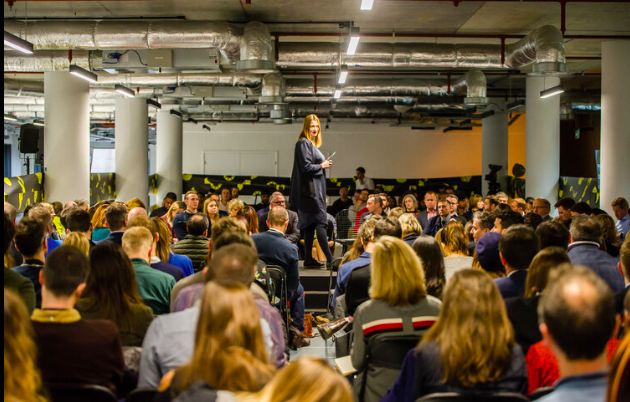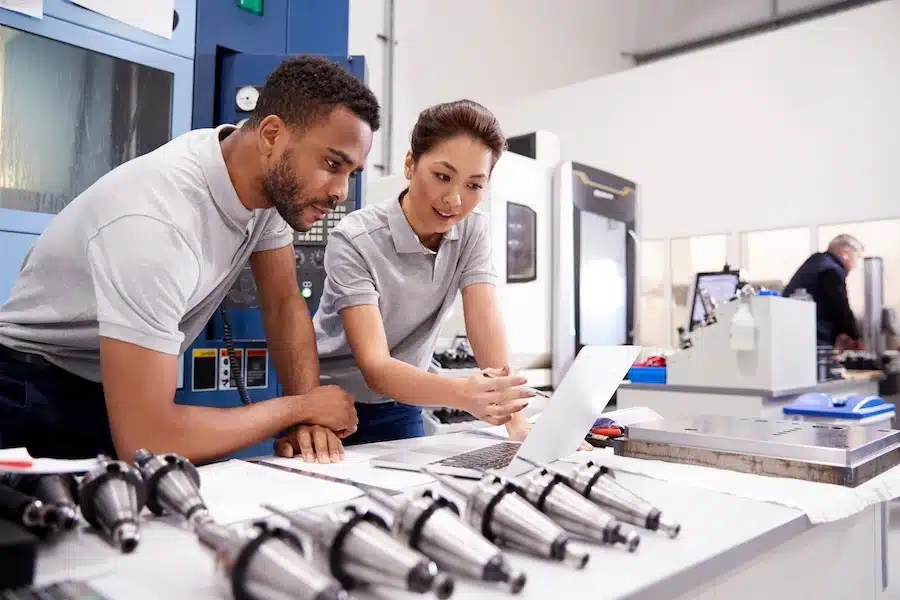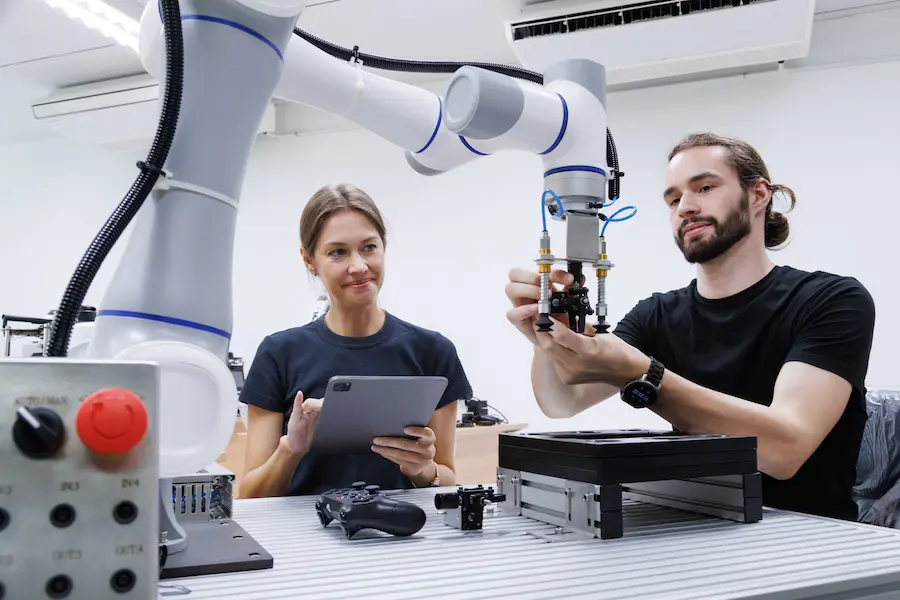Where would you find Uber, a hostage negotiator and Amazon’s Alexa all in the same place? No, not in some spooky futuristic standoff on a motorway. It’s #TBDconf, the annual gathering of futurists, journalists and tech experts that asks big questions about the future of technology, behaviour and data. T,B,D.
There were some fascinating, insight-packed presentations this year, based on the event’s core themes of Brexit, AI and work-life balance. Here’s a quick recap of my five favourite discussions from this year’s event:
-
TechCrunch interviews Uber
Sometimes we think so highly of tech companies, and become so infatuated with their services, we forget to question how ethical they really are. Thankfully there are people like TechCrunch’s Ingrid Lunden to open our eyes to these important issues and make powerful companies accountable to their customers.
Lunden hosted one of the day’s most intriguing sessions; an intimate, on-stage interview with Fred Jones, Uber’s Head of New Mobility. Her questions were extremely well balanced. She explored the technologies used in Uber’s service, but also asked penetrating questions about the company’s issues with sexism and harassment, which caused Travis Kalanick to resign last year. Their exchange was informative and very frank. Well done Ingrid!
-
A hostage negotiator teaches listening
As a salesperson, listening is a major part of my job. If I don’t listen, I won’t understand what the person I’m talking to needs. But while sales is important, it’s not a matter of life and death. Though maybe some of my colleagues would disagree with that.
The importance of listening was put in a different light by Richard Mullender, a hostage negotiator who’s now a public speaker and management consultant. In Mullender’s previous career, listening really was a matter life or death.
Based on his experiences, he shared some fascinating practical tips on ways we can all listen better, and come to grips with what an individual is really trying to say. For example, stopping yourself making and following conclusions so you can really understand where the other person is coming from. I’m excited to use his tips in my job and, more importantly, my personal life.
-
Unhappy New Year, from the Economist
2019 seems like a scary place. That’s if you believe Tom Standage, deputy editor at The Economist, who gave an interesting but gloomy description of where he things the world will be a year from now. Standage, who also runs the magazine’s digital strategy, said that the things that will have the biggest impact next year will be the continuation of trade wars, the fallout from Brexit, and the perseverance of Trump’s populist agenda.
He also said that next year we’ll be making some big steps towards making designer babies a reality. This is a really difficult but significant issue. And we shouldn’t make too many advancements before we’ve had the chance to think about what this means for our society.
Despite Standage’s presentation, I am still optimistic about our future. Though, maybe not as much as I was before I heard him speak.
-
Where are all the female Futurists?
It’s no secret that men dominate the tech world. For every Sheryl Sandberg, there are many more characters like Steve Jobs, Bill Gates and Elon Musks. But as technology plays a bigger and bigger role in our society, and changes who we are and how the world works, we should be asking why aren’t there more female futurists? Why aren’t we hearing from more women on our technological future? This was the argument made by Tracey Follows, founder of consultancy Futuremade.
In her captivating talk, Follows, who is a futurist, also shared some thoughts about the future of gender more generally. Is the typical, binary model becoming outdated? Are we move towards the era of ‘ME’, where labels like ‘he’ and ‘she’ become irrelevant, and people are free to explore their identity outside of these designations?
-
Amazon everywhere
Amazon was also a hot topic at the TBD conference. It is at most tech conferences, to be honest. Attendees were asking serious questions about the company’s growing power, its intentions towards our data and what it’s doing to the brick-and-mortar retail landscape. Aside from Amazon’s troubling levels of influence, another topic was surfaced, related to Alexa and virtual assistants, which I found particularly interesting.
Virtual assistants are becoming an increasingly large, important and vocal presence in our homes. Many children are now growing up with the likes of Siri and Cortana. They’re asking them questions or having them play their music. But could how they learn to treat virtual assistants, who can’t feel, and don’t care if you don’t say please and thank you, damage their relationships with real people?
As Meabh Quoirin, CEO of the Foresight Factory, explained in her talk, we have to take interactions with Alexa seriously. It could be conditioning us with negative behaviours. For example, some argue the reason Alexa and Siri have female voice is because women are often portrayed as subservient. We can’t allow Alexa to perpetuate this stereotype. Generally, we need to watch out that talking to Alexa doesn’t cause impressionable minds to forget pleasantries and create sexist assumptions about gender roles.
Working in the technology industry we are sometimes so overwhelmed by the speed of change that we forget to notice how lucky we are to be living in such exciting times. We must also remember that we still have the power so shape what happens next. Humans created technology. So, humans have the responsibility to steer it in the right direction. This was the main message I took away from this 2018’s excellent TBD conference. I look forward to more interesting debates next year!



